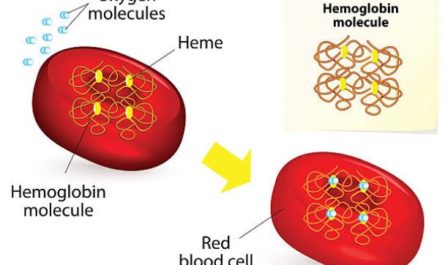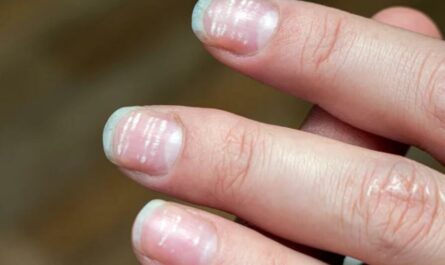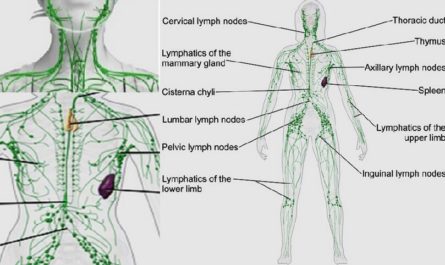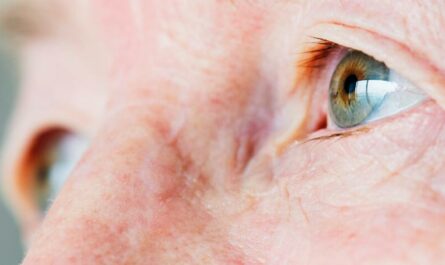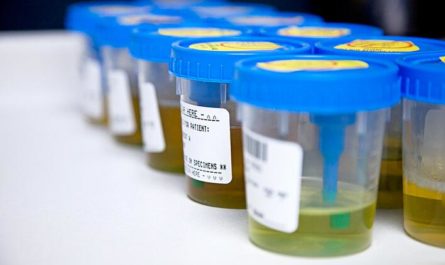Have you ever noticed a cloudy or gritty appearance in your urine? Or experienced pain or discomfort during urination? These could be signs of calcium oxalate crystals in your urine. This is a common condition that can lead to kidney stones if left untreated. In this comprehensive guide, we’ll explore everything you need to know about calcium oxalate crystals, including their causes, symptoms, and effective treatment options.
What are Calcium Oxalate Crystals?
Calcium oxalate crystals are a compound formed when calcium and oxalate, a naturally occurring substance found in many foods, combine in the urinary tract. These crystals can range in size from microscopic to large enough to cause blockages and severe pain.
Calcium oxalate is the most common type of kidney stone, accounting for approximately 80% of all cases. While these crystals can pass through the urinary tract without causing any issues, they can also accumulate and form larger stones, leading to potential complications.
Oxalate is a naturally occurring compound found in various plant-based foods, such as spinach, rhubarb, nuts, wheat bran, and certain berries. It is also produced by the body as a byproduct of metabolism. Under normal circumstances, oxalate is efficiently excreted through the urine without causing any issues.
However, when there is an imbalance between the levels of oxalate and calcium in the urine, or when the urine becomes too concentrated, these substances can crystallize and form calcium oxalate crystals.
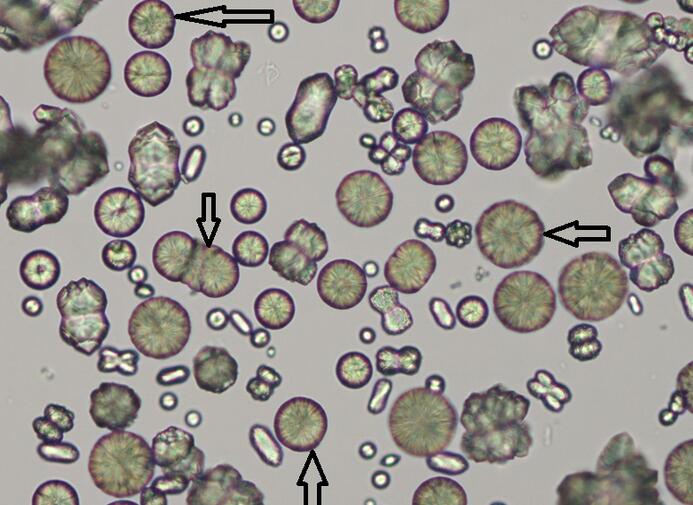
Symptoms of Calcium Oxalate Crystals in Urine
Calcium oxalate crystals in the urine can cause a range of symptoms, depending on their size and location. Some common symptoms include:
- Blood in urine (hematuria): The presence of blood in the urine can be a sign of crystal formation or kidney stones. This can occur when the crystals or stones irritate or scratch the lining of the urinary tract.
- Pain or burning during urination: Crystals or stones can irritate the urinary tract, causing discomfort or pain during urination. This pain may be felt in the lower abdomen, groin, or back.
- Cloudy or foul-smelling urine: Crystals or stones can cause the urine to appear cloudy or have an unpleasant odor, which may be indicative of an infection or inflammation.
- Abdominal or back pain: If crystals or stones become lodged in the urinary tract, they can cause severe pain in the abdomen or back. This pain may radiate to the groin or lower back and can be excruciating, especially if a stone is trying to pass through the ureter (the tube connecting the kidney to the bladder).
- Nausea and vomiting: In some cases, the presence of crystals or stones can lead to nausea and vomiting, especially if they cause a blockage or significant pain.
- Frequent urination or urgency: Crystals or stones can irritate the bladder, leading to a frequent urge to urinate or a feeling of incomplete emptying of the bladder.
Causes of Calcium Oxalate Crystal Formation
Several factors can contribute to the formation of calcium oxalate crystals in the urine:
1. Dehydration and low urine output
When the body is dehydrated, the urine becomes more concentrated, increasing the likelihood of crystal formation. Inadequate fluid intake is one of the most common risk factors for developing calcium oxalate crystals and stones.
2. Diet high in oxalate-rich foods
Certain foods, such as spinach, nuts, wheat bran, and some berries, are rich in oxalate. Consuming excessive amounts of these foods can increase the levels of oxalate in the urine, contributing to crystal formation.
3. Medical conditions
Certain medical conditions, such as Crohn’s disease, inflammatory bowel disease, and gastric bypass surgery, can increase the absorption of oxalate and contribute to crystal formation. These conditions can also lead to dehydration, further exacerbating the problem.
4. Genetic factors
Some individuals may have a genetic predisposition to producing higher levels of oxalate or have a reduced ability to excrete it efficiently. Certain genetic disorders, such as primary hyperoxaluria, can significantly increase the risk of calcium oxalate crystal formation.
5. Excess vitamin C intake
While vitamin C is generally beneficial, excessive intake through supplements can lead to increased oxalate production and crystal formation. This is because vitamin C is metabolized into oxalate in the body.
6. Certain medications
Some medications, such as certain antibiotics, anticonvulsants, and diuretics, can increase the risk of calcium oxalate crystal formation.
Diagnosis of Calcium Oxalate Crystals
If you experience any of the symptoms mentioned above, it’s essential to seek medical attention for proper diagnosis. Your healthcare provider may recommend the following tests:
1. Urinalysis
This simple test can detect the presence of calcium oxalate crystals, blood, or other abnormalities in the urine. During a urinalysis, a sample of your urine is examined under a microscope to identify the presence of crystals, bacteria, or other substances.
2. Imaging tests
If kidney stones are suspected, your doctor may order imaging tests such as a CT scan or ultrasound to visualize the stones and their location. These tests can also help determine the size and number of stones present, as well as any potential obstructions or complications.
3. 24-hour urine collection test
This test measures the amount of oxalate and other substances excreted in the urine over 24 hours, helping to identify potential risk factors and guide treatment. During this test, you will be asked to collect all your urine over 24 hours in a special container, which will then be analyzed in a laboratory.
4. Blood tests
In some cases, your healthcare provider may order blood tests to check for underlying medical conditions or metabolic disorders that could be contributing to the formation of calcium oxalate crystals.
Risk Factors for Developing Calcium Oxalate Stones
While anyone can develop calcium oxalate crystals, certain factors can increase the risk of stone formation:
- Family history of kidney stones: If you have a close relative with a history of kidney stones, you may be at a higher risk due to genetic factors or shared environmental influences.
- Obesity: Being overweight or obese can increase the risk of developing kidney stones, as excess weight can contribute to metabolic imbalances and increased stone formation.
- Inflammatory bowel diseases: Conditions like Crohn’s disease and ulcerative colitis can increase oxalate absorption and stone formation due to malabsorption and inflammation in the digestive tract.
- Certain medications: Some medications, such as diuretics, antacids containing calcium, certain antibiotics, and anti-seizure medications, can increase the risk of stone formation by altering the composition of urine or increasing oxalate levels.
- Excess vitamin D intake: While vitamin D is essential for bone health, excessive intake can lead to increased calcium absorption and stone formation.
- Metabolic disorders: Certain metabolic disorders, such as primary hyperoxaluria, cystinuria, and renal tubular acidosis, can increase the risk of developing calcium oxalate stones due to abnormalities in the body’s handling of oxalate or other substances.
- Dehydration and low urine output: Chronic dehydration and low urine output can increase the concentration of substances in the urine, making it more likely for crystals and stones to form.
It’s important to note that having one or more of these risk factors does not necessarily mean that you will develop calcium oxalate stones, but it does increase your risk.
Complications of Untreated Calcium Oxalate Crystals
If left untreated, calcium oxalate crystals can lead to several complications, including:
- Kidney stone formation: Crystals can accumulate and form larger stones, which can become lodged in the urinary tract, causing severe pain and potential blockages. Kidney stones can range in size from a grain of sand to a golf ball, and larger stones can be extremely painful and difficult to pass.
- Urinary tract infections: Stones can create an environment conducive to bacterial growth, increasing the risk of urinary tract infections (UTIs). UTIs can cause additional symptoms such as fever, chills, and pelvic pain, and can potentially lead to more serious complications if left untreated.
- Kidney damage or failure: In severe cases, untreated kidney stones can lead to kidney damage or even kidney failure, especially if they cause a complete blockage of urine flow. This can result in the buildup of waste products in the body and potentially life-threatening complications.
- Sepsis: If a urinary tract infection associated with kidney stones is not treated promptly, it can lead to sepsis, a potentially life-threatening condition where the infection spreads to the bloodstream.
- Chronic pain: Recurring kidney stones or chronic inflammation caused by untreated crystals can lead to persistent pain and discomfort, affecting quality of life.
It’s crucial to seek medical attention if you experience any symptoms or have a history of kidney stones to prevent these potential complications and ensure timely treatment.
Treatment Options for Calcium Oxalate Crystals
The treatment approach for calcium oxalate crystals and stones may vary depending on the severity of the condition and the individual’s risk factors. Some common treatment options include:
1. Increased fluid intake
Drinking plenty of fluids, especially water, can help dilute the urine and flush out crystals or small stones. Your healthcare provider may recommend drinking at least 2-3 liters of water per day to increase urine output and reduce the concentration of substances that can form crystals.
2. Dietary changes
Your healthcare provider may recommend a low-oxalate, low-salt, and moderate-protein diet to reduce the risk of crystal formation. This may involve limiting or avoiding foods high in oxalate, such as spinach, rhubarb, nuts, and wheat bran.
3. Medications
Certain medications, such as thiazide diuretics and potassium citrate, can help prevent the formation of calcium oxalate crystals by altering the urine composition. Thiazide diuretics can reduce calcium excretion in the urine, while potassium citrate can help increase the solubility of calcium oxalate, making it less likely to form crystals.
4. Lithotripsy
For larger stones, a procedure called lithotripsy may be used to break them down into smaller fragments that can pass more easily through the urinary tract. Lithotripsy uses shock waves or laser energy to break up the stones, allowing them to be passed through urination.
5. Surgery
In cases where stones are too large to pass or cause a complete blockage, surgical intervention may be necessary to remove them. This can involve procedures such as ureteroscopy, percutaneous nephrolithotomy, or, in severe cases, open surgery.
Preventing Future Calcium Oxalate Crystals
While some risk factors for calcium oxalate crystal formation are beyond your control, there are several steps you can take to reduce your risk:
1. Stay hydrated
Drinking plenty of fluids, especially water can help dilute the urine and prevent crystal formation. Aim to drink at least 2-3 liters of water per day, or more if you live in a hot climate, exercise frequently, or have a condition that increases fluid loss.
2. Follow a low-oxalate diet
Limit your intake of oxalate-rich foods, such as spinach, rhubarb, nuts, and wheat bran. However, it’s important to note that a balanced diet with moderate amounts of oxalate-containing foods is generally safe for most individuals.
3. Limit vitamin C supplements
While vitamin C is essential, excessive intake through supplements can increase oxalate production. If you take vitamin C supplements, consult with your healthcare provider to ensure you are taking an appropriate dosage.
4. Maintain a healthy weight
Obesity is a risk factor for kidney stone formation, so maintaining a healthy weight through a balanced diet and regular exercise can be beneficial.
5. Avoid excessive salt intake
A high-sodium diet can increase the risk of stone formation by increasing calcium excretion in the urine. Limit your intake of processed and salty foods, and avoid adding excessive salt to your meals.
6. Increase calcium intake
While it may seem counterintuitive, increasing your calcium intake from dietary sources can help reduce the risk of calcium oxalate stone formation. Calcium binds to oxalate in the digestive tract, reducing the amount of oxalate that is absorbed and excreted in the urine.
7. Consider supplements or medications
In some cases, your healthcare provider may recommend supplements or medications to help prevent calcium oxalate crystal formation. These may include potassium citrate, thiazide diuretics, or other medications that alter the composition of urine.
By incorporating these preventive measures into your lifestyle, you can significantly reduce your risk of developing calcium oxalate crystals and the associated complications.
When to See a Doctor?
If you experience any of the following symptoms, it’s crucial to seek medical attention promptly:
- Signs of a kidney stone: Severe pain in the abdomen or back, nausea, vomiting, or fever can indicate the presence of a kidney stone and require immediate medical attention. Kidney stones can cause excruciating pain and may require prompt treatment to prevent complications.
- Recurrent urinary tract infections: Frequent urinary tract infections can be a sign of an underlying issue, such as the presence of crystals or stones. Untreated UTIs can lead to more serious complications, so it’s important to seek medical attention.
- Family history of kidney stones: If you have a family history of kidney stones, it’s essential to discuss preventive measures with your healthcare provider, as you may be at a higher risk of developing the condition.
- Persistent blood in urine: While occasional blood in the urine can be caused by various factors, persistent hematuria should be evaluated by a medical professional, as it can be a sign of an underlying condition or injury.
- Unexplained abdominal or back pain: If you experience persistent or severe abdominal or back pain without a known cause, it’s important to seek medical attention to rule out the possibility of kidney stones or other urinary tract issues.
Early diagnosis and treatment of calcium oxalate crystals can help prevent the formation of larger stones and potential complications.

